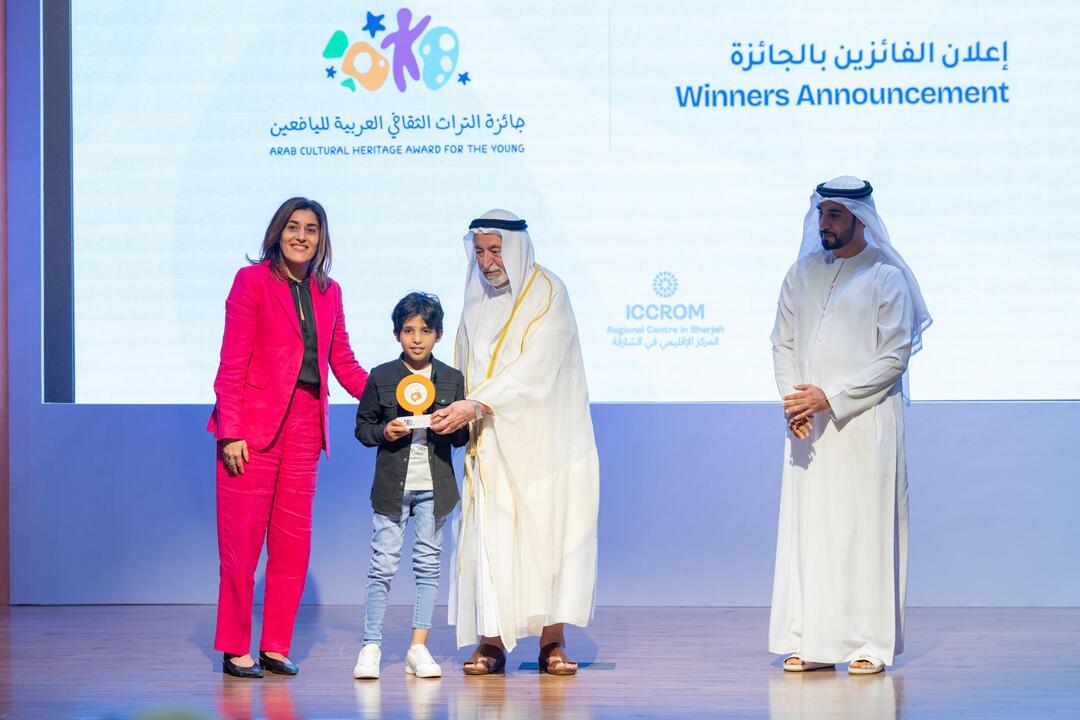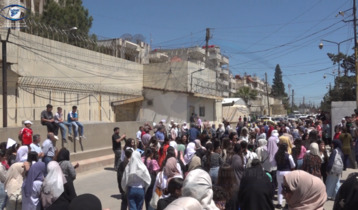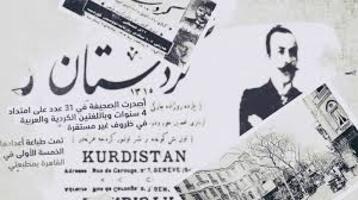-
Winners of the ICCROM-Sharjah Award for Good Practices

Winners of the ICCROM-Sharjah Award for Good Practices in the Preservation and Protection of Cultural Heritage and the Arab Cultural Heritage Award for Young announced
Managing Libya’s Cultural Heritage receives the Grand Award
Five exemplary projects from Palestine, Saudi Arabia, Egypt, and the UAE receive Honorary Award
Sharjah, United Arab Emirates, 28 November 2024 - Under the gracious patronage of His Highness Sheikh Dr. Sultan bin Muhammad Al Qasimi, Supreme Council Member and Ruler of Sharjah, who honoured the occasion with his esteemed presence, the ICCROM Regional Centre in Sharjah organized a special ceremony to announce the winning projects of the 4th cycle of the ICCROM-Sharjah Award for Good Practices in the Preservation and Protection of Cultural Heritage in the Arab Region (2023-2024), and the 3rd cycle of the Arab Cultural Heritage Award for the Young, at the headquarters of the ICCROM Regional Centre in Sharjah - Centre for International Organizations for Cultural Heritage (United Arab Emirates).
The Director-General of ICCROM, Ms. Aruna Francesca Maria Gujral, delivered her opening remarks, expressing heartfelt gratitude to His Highness Sheikh Dr. Sultan bin Mohammed Al Qasimi for his continuous and steadfast support for the activities of the ICCROM Regional Centre in Sharjah and his generous patronage of this prestigious award, which highlights exceptional projects working to preserve cultural heritage for the benefit of communities.
“The ICCROM Sharjah Award for Good Practices in Cultural Heritage Conservation is far more than a recognition; it is a testament to the transformative power of heritage preservation and a celebration of the heroes who champion this vital cause,” said ICCROM Director-General Gujral. “This Award honors not just technical expertise, but the deeper, intangible contributions that sustain the cultural identities and ways of life of our communities.”
Mr. Nasir Al Darmaki, Deputy Manager of the ICCROM Regional Centre in Sharjah, welcomed His Highness the Ruler of Sharjah and the guests at the ceremony, thanking His Highness for his steadfast support and vision, which have guided the centre’s initiatives since its inception in 2012. He also expressed gratitude to the centre's strategic partners, calling them vital to achieving its goals of protecting Arab cultural heritage and promoting access to its rich history.
"The centre aims primarily to improve the capabilities of heritage and cultural institutions to manage heritage and archaeological sites and museums sustainably," Al Darmaki stated, highlighting efforts such as training, consultations, policy development, and regional activities. He added, "Cultural heritage is the memory of nations and peoples... a witness to our shared history and unique identity," emphasizing that the awards celebrate efforts to preserve heritage and foster innovative, sustainable solutions.
Announcing the winners of the ICCROM-Sharjah Award for Good Practices
H.E. Marwa Al Aqroubi, the Executive Director of House of Wisdom in Sharjah and representative of the Jury Committee of the 4th cycle of the ICCROM-Sharjah Award for Good Practices in the Preservation and Protection of Cultural Heritage in the Arab Region announced the winners. According to the jury report, the Grand Award is presented to the project of Managing Libya’s Cultural Heritage - Restoring Ghadames: Creation of the Visitor Centre (MaLiCH Project), as a comprehensive initiative that manages cultural heritage in the Ghadames region, with a particular focus on community cooperation and capacity building. It addresses the challenges of restoration, rehabilitation, and practical and integrated management of traditional mud buildings to serve the local community.
In addition, an Honorary Award was presented to five projects, including the “Conservation of the Historic Al-Qaisariyya Bazaar in Gaza City” in Palestine. This project is a vital symbol of protecting an important historical site in Gaza despite the challenges facing the city. The project was able to combine restoration activities with economic and social life to contribute to sustainable development.
The second project is “A Legacy of a Lexicon: The Conservation, Documentation, and Management of the Ahmed Pasha Kamal Dictionary” at the Bibliotheca Alexandrina in Egypt. It is a comprehensive project to preserve a rare historical dictionary, with a focus on physical and digital restoration to ensure sustainable access to this historical linguistic work and its preservation for future generations.
The third project is the “Traditional Building Apprenticeship: Building National Capacities for the Preservation of Urban Heritage in the Riyadh Region” in Saudi Arabia. It contributes to reviving and protecting traditional mud architecture techniques, preserving them for future generations, and ensuring the sustainability of this approach to preserving architectural heritage in the region.
The fourth project, “Sharjah Rock Art Documentation: From Traditional to Digital," focuses on preserving and documenting exceptional rock art in Sharjah and promoting a broader understanding of the region's history and its relationship to global cultural traditions through digital documentation.
The fifth project is “The Restoration of the Touqan House – the scholar Qadri and the poets Fadwa and Ibrahim Touqan” in Nablus, Palestine. According to the jury report, the project reflects an important part of the Palestinian and Arab cultural heritage. It constitutes a model for preserving the memory of the place and the tangible and intangible heritage of eminent figures who left an important legacy and an indelible impact on the region through their literary and poetic works.
Announcing the winners of the Arab Cultural Heritage Award for the Young
Mr. Hamid Khalfan Al Kindi, Vice Chairman of the Sharjah Youth Council and a member of the Jury Committee of the Arab Cultural Heritage Award for the Young, announced the award winners. In the drawing category, the first place was won jointly by student Saud Shahil Zamel Al Shahil and student Fahd Shahil Zamel Al Shahil, both from Saudi Arabia.
Student Maryam Younis Abdul Rahman Al-Fil from the United Arab Emirates won second place, and student Hala Dhafer Shaghil from Syria won third. The jury also awarded Abdul Rahman Hassan Al Asaad from Al Khansa Private School in Syria a special honorary award in the drawing category in appreciation of his exceptional artwork.
In the photography category, student Nadim Abdul Rahman Ali Qaed from Yemen won first place, student Ruba Ali Abdul Rahim Tawalbeh from Jordan took second place, and student Selina Fakhr El-Din from Lebanon took third place.
In the folkloric dance category, first place was won by the Al-Taqaddum School for Basic Education in Tripoli, Libya, for a dancing performance representing the Libyan tradition; and in second place was the Hajj Baha El-Din Al-Hariri School in Sidon in Lebanon for a folklore dance in Khan Al-Franj; while in third place was won jointly by the Mayasm Association for Culture and Arts in Gaza, Palestine, for a Palestinian Dabke at the site of the Monastery of Saint Hilarion, Tell Umm Amer; and the Wardiya Mixed Basic School in Jordan, for a Dabke from the ancient Jordanian heritage.
Finally, in the awareness film category, Al-Firdaws National School in Iraq jointly won first place for a short film titled Mosul Markets and Rawdat Al Fayhaa Secondary School in Lebanon for a short film titled Khan Al Khayyatin in Tripoli. The second place went to student Helen Muhammad Al Bilal from the Martyr Hikmat Nadim Mubarak School in Homs, Syria, for a short film titled “Remembrance Thursday.” Finally, the third place went to student Retaj Boufateh from Al Bashair Private School in Laghouat, in the Algerian Republic, for a short film titled “From the Fragrance of Heritage.”
His Highness Sheikh Dr. Sultan bin Muhammad Al Qasimi, Member of the Supreme Council and Ruler of Sharjah, and the Director-General of ICCROM, Ms. Aruna Francesca Maria Gujral, and Mr. Nasser Al Darmaki, Deputy Manager of the ICCROM Regional Centre in Sharjah, honoured all the winners of the two competitions and presented the prizes.
Honouring Professor Nasser Al Rabat
The ICCROM Regional Centre in Sharjah also honoured historian, architect, and Aga Khan Professor of Islamic Architecture at the Massachusetts Institute of Technology (MIT) in Cambridge, Massachusetts, USA, Professor Nasser Rabbat, in recognition of his exceptional scientific and research career, which has resulted in more than one hundred scientific articles and books on topics ranging from Mamluk architecture to ancient Syria, Cairo in the nineteenth century, to in-depth studies on Orientalism and other vital issues related to architecture and cities.
On this occasion, a book featuring his groundbreaking work from the past decade will be published to commemorate this achievement, the ICCROM Regional Centre in Sharjah announced.
Representatives of international, national, and local organizations, civil society organizations, and diplomatic missions attended the celebration. Experts from the cultural heritage field in the region, as well as media and correspondents of local and Arab news agencies and newspapers, also attended.
For more information, please contact:
Shireen Sahouri
Programme Officer, Outreach and Development
ICCROM Regional Centre in Sharjah
Tel: 00971 65552250
E-mail: [email protected]
M. Adham ALSAYED
Communication and Media Consultant
Tel: 0033 623814518
E-mail: [email protected]
About the ICCROM Regional Centre in Sharjah
The ICCROM Regional Centre in Sharjah is a cultural hub generously supported by His Highness Sheikh Dr Sultan bin Muhammad Al Qasimi, the Ruler of Sharjah and member of the Supreme Council of the United Arab Emirates. The office is a powerhouse of cultural heritage knowledge, specially created for widespread adoption in Arabic-speaking countries. Launched in 2012, ICCROM-Sharjah is dedicated to protecting cultural heritage in the Arab region and broadening access, appreciation, and understanding of its rich history.
You May Also Like
Popular Posts
Caricature
BENEFIT Sponsors BuildHer...
- April 23, 2025
BENEFIT, the Kingdom’s innovator and leading company in Fintech and electronic financial transactions service, has sponsored the BuildHer CityHack 2025 Hackathon, a two-day event spearheaded by the College of Engineering and Technology at the Royal University for Women (RUW).
Aimed at secondary school students, the event brought together a distinguished group of academic professionals and technology experts to mentor and inspire young participants.
More than 100 high school students from across the Kingdom of Bahrain took part in the hackathon, which featured an intensive programme of training workshops and hands-on sessions. These activities were tailored to enhance participants’ critical thinking, collaborative problem-solving, and team-building capabilities, while also encouraging the development of practical and sustainable solutions to contemporary challenges using modern technological tools.
BENEFIT’s Chief Executive Mr. Abdulwahed AlJanahi, commented: “Our support for this educational hackathon reflects our long-term strategic vision to nurture the talents of emerging national youth and empower the next generation of accomplished female leaders in technology. By fostering creativity and innovation, we aim to contribute meaningfully to Bahrain’s comprehensive development goals and align with the aspirations outlined in the Kingdom’s Vision 2030—an ambition in which BENEFIT plays a central role.”
Professor Riyadh Yousif Hamzah, President of the Royal University for Women, commented: “This initiative reflects our commitment to advancing women in STEM fields. We're cultivating a generation of creative, solution-driven female leaders who will drive national development. Our partnership with BENEFIT exemplifies the powerful synergy between academia and private sector in supporting educational innovation.”
Hanan Abdulla Hasan, Senior Manager, PR & Communication at BENEFIT, said: “We are honoured to collaborate with RUW in supporting this remarkable technology-focused event. It highlights our commitment to social responsibility, and our ongoing efforts to enhance the digital and innovation capabilities of young Bahraini women and foster their ability to harness technological tools in the service of a smarter, more sustainable future.”
For his part, Dr. Humam ElAgha, Acting Dean of the College of Engineering and Technology at the University, said: “BuildHer CityHack 2025 embodies our hands-on approach to education. By tackling real-world problems through creative thinking and sustainable solutions, we're preparing women to thrive in the knowledge economy – a cornerstone of the University's vision.”
opinion
Report
ads
Newsletter
Subscribe to our mailing list to get the new updates!






















